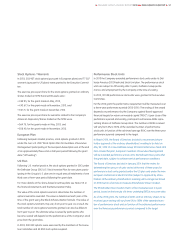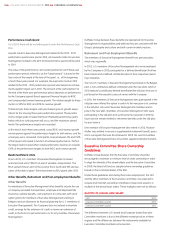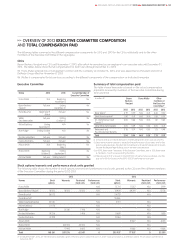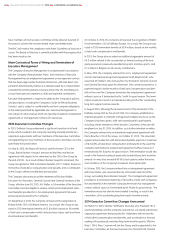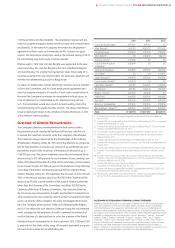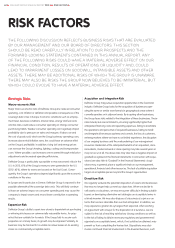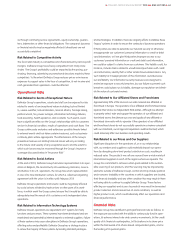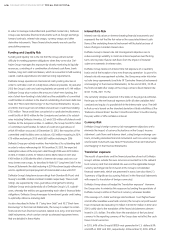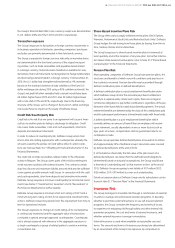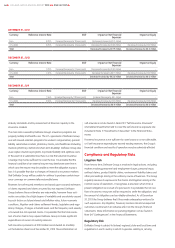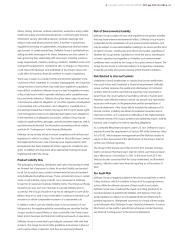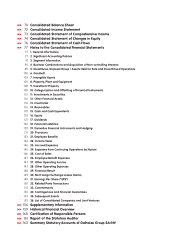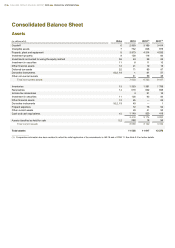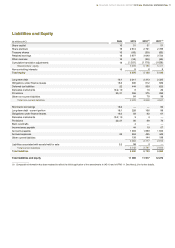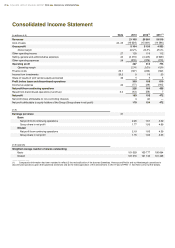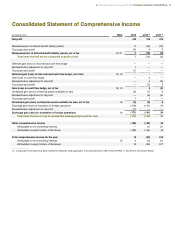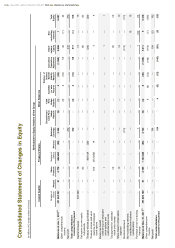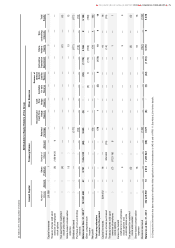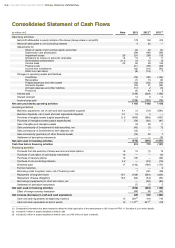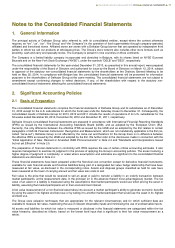Food Lion 2013 Annual Report Download - page 69
Download and view the complete annual report
Please find page 69 of the 2013 Food Lion annual report below. You can navigate through the pages in the report by either clicking on the pages listed below, or by using the keyword search tool below to find specific information within the annual report.
others, zoning, land use, antitrust restrictions, work place safety, public
health and safety, environmental protection, community right-to-know,
information security and data protection, alcoholic beverage and
tobacco sales and pharmaceutical sales. A number of jurisdictions
regulate the licensing of supermarkets, including retail alcoholic bever-
age licenses. In certain jurisdictions, Delhaize Group is prohibited from
selling alcoholic beverages in its stores. Employers are also subject to
laws governing their relationship with associates, including minimum
wage requirements, overtime, working conditions, disabled access and
work permit requirements. Compliance with, or changes in, these laws
could reduce the revenues and profitability of the Group’s stores and
could affect its business, financial condition or results of operations.
The Group is subject to a variety of antitrust and similar legislation in the
countries in which it operates. In a number of geographies, the Group has
a large number of stores which may make future significant acquisitions
more difficult. In addition, Delhaize Group is subject to legislation in many
of the jurisdictions in which it operates relating to unfair competitive prac-
tices and similar behaviour. Delhaize Group has been subject to and may
in the future be subject to allegations of, or further regulatory investigations
or proceedings into, such practices. Such allegations, investigations or
proceedings (irrespective of merit), may require the Group to devote signif-
icant management resources to defending itself against such allegations.
In the event that such allegations are proven, Delhaize Group may be
subject to significant fines, damages, awards and other expenses, and its
reputation may be harmed. For information on pending antitrust matters,
see Note 34 ”Contingencies” in the Financial Statements.
Delhaize Group actively strives to ensure compliance with all laws and
regulations to which it is subject. The Guide for Ethical Business Conduct
that replaced the former Code of Conduct was implemented in 2010
and policies have been adopted to further support its compliance pro-
gram. In addition anti-fraud and other appropriate training has been
implemented within the Group.
Product Liability Risk
The packaging, marketing, distribution and sale of food products entail
an inherent risk of exposure to claims for product liability, and product
recall. Such products may contain contaminants that may be inadvert-
ently distributed by Delhaize Group. These contaminants may, in certain
cases, result in illness, injury or death. As a consequence, Delhaize
Group has an exposure to product liability claims. The Group purchases
insurance to cover such risk. However, if a product liability claim is
successful, the Group’s insurance may not be adequate to cover all lia-
bilities it may incur, and it may not be able to continue to maintain such
insurance or obtain comparable insurance at a reasonable cost.
In addition, even if a product liability claim is not successful or is not
fully pursued, the negative publicity surrounding any assertion that the
Group’s products caused illness or injury could affect the Group’s repu-
tation and its business and financial condition and results of operations.
Delhaize Group is committed to providing its customers with safe food
products. The Group has food safety guidelines and policies in place in
each country where it operates, and they are vigorously followed.
Risk of Environmental Liability
Delhaize Group is subject to laws and regulations that govern activities
that may have adverse environmental effects. Delhaize Group may be
responsible for the remediation of such environmental conditions and
may be subject to associated liabilities relating to its stores and the land
on which its stores, warehouses and offices are located, regardless of
whether the Group leases, subleases or owns the stores, warehouses
or land in question and regardless of whether such environmental
conditions were created by the Group or by a prior owner or tenant. The
Group has put in place control procedures at its operating companies
to identify, prioritize and resolve adverse environmental conditions.
Risk Related to Internal Controls
Undetected control weaknesses or controls that function ineffectively
may result in loss and if material, a financial misstatement. Delhaize
Group routinely assesses the quality and effectiveness of its internal
controls. Internal control over financial reporting may not prevent or
detect fraud, the circumvention of overriding controls or human error.
Therefore, even effective internal controls can provide only reasonable
assurance with respect to the preparation and fair presentation of
financial statements. If the Group fails to maintain the adequacy of its
internal controls, including any failure to implement required new or
improved controls, or if it experiences difficulties in the implementation
of internal controls, the Group’s business and operating results could be
harmed, and it could fail to meet its reporting obligations.
As a company filing financial reports under U.S. law, Delhaize Group is
required to meet the requirements of Section 404 of the Sarbanes-Oxley
Act of 2002, which requires management and the Statutory Auditor to
report on their assessment of the effectiveness of the Group’s internal
control over financial reporting.
The Group’s 2012 annual report filed on Form 20-F includes manage-
ment’s conclusion that the Group’s internal control over financial report-
ing is effective as of December 31, 2012. In the same Form 20-F, the
Statutory Auditor concluded that the Group maintained, in all material
respects, effective control over financial reporting as of December 31,
2012.
Tax Audit Risk
Delhaize Group is regularly audited in the various jurisdictions in which
it does business, which it considers to be part of its ongoing business
activity. While the ultimate outcome of these audits is not certain,
Delhaize Group has considered the merits of its filing positions in its
overall evaluation of potential tax liabilities and believes it has ade-
quate liabilities recorded in its consolidated financial statements for
potential exposures. Unexpected outcomes as a result of these audits
could adversely affect Delhaize Group’s financial statements. For more
information on tax audits in jurisdictions where we conduct business,
see Note 34 ”Contingencies” in the Financial Statements.
DELHAIZE GROUP ANNUAL REPORT 2013
RISK FACTORS
67


